- About Us
- Our School
- Enrolment
- Faith & Service
- Learning
- Co-Curriculum
- Our Community
- Portal
Saint Ignatius College Geelong
Saint Ignatius College Geelong

After nearly nine weeks the Years 11 and 12 (and some Year 10) students returned on Tuesday 26th May.

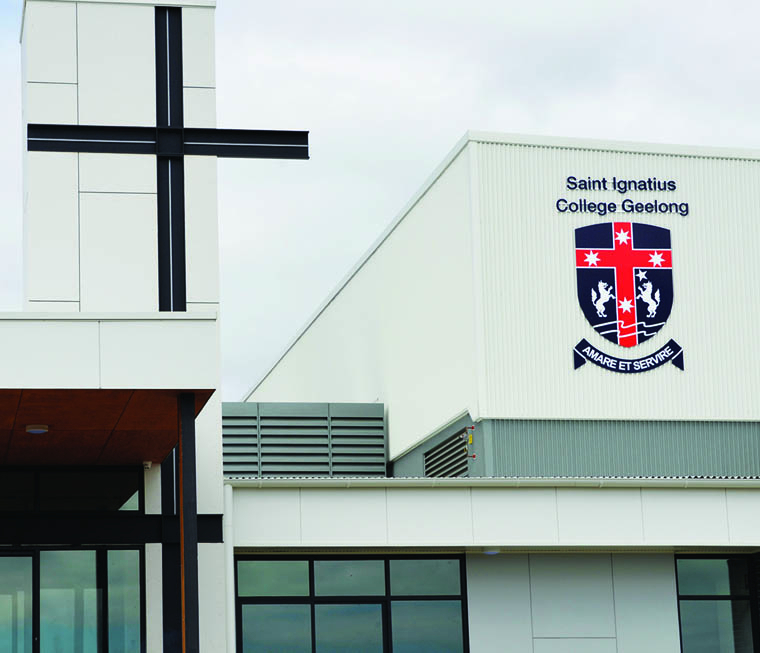
Due to the move to Remote and Flexible learning, we are maintaining communications via the following options


Dear Parents and Carers,
Welcome back to our students!
After nearly nine weeks (which includes the two weeks of the Term One holidays), the Years 11 and 12 (and some Year 10) students returned on Tuesday 26th May. It was great to see our senior students back. And next Tuesday we look forward to the Years 7 – 10 students returning.
The school community has done a tremendous job to ensure our students’ learning continuity during the period of remote learning and working. I commend students and staff members for their adaptability, flexibility and hard work to manage during these very challenging and difficult times. Thank you to parents and carers for your ongoing support of the College and all you have done to support your daughter/son’s learning at home.
Our “Return to School – Parent & Student Information” guide has been emailed to all families. It provides what you need to know and what you need to do in regards to the transition back to learning on site and ensuring safety at school. Please contact the Year Level Coordinator or Homeroom Teacher if you have any questions or need clarification about any element of the arrangements.
As indicated in the guide, there will be many changes to our day to day operations to ensure everyone’s safety at school. The most critical factors in ensuring our safety are physical distancing and effective hygiene practices. I ask you to please reinforce this with your daughter/son. And, if she/he is unwell, I also ask that you please keep them home and seek medical advice if they are showing flu-like symptoms before they return.
There have been no known cases of COVID-19 infection to date in our school community. If a student or staff member returns a positive test for COVID-19 we will need to follow our “COVID-19 incident response plan.” Depending on the circumstances, this may result in a lockdown and then closing the school for two to three days. Depending on the time of the day when the lockdown occurs, students could be sent home early. Deputy Principal, Michael Timms provides more details about this in his article in this newsletter.
The College’s ICT infrastructure and online platforms performed exceptionally well to support remote teaching and learning. This is a credit to our dedicated and hardworking ICT Team.
One of many noteworthy features of the College’s response to the Coronavirus outbreak was the redeployment of four Education Support staff members to provide a meals program that involved them sourcing ingredients, cooking and distributing meals to families in need. Some statistics:
• School community families - 1076 main meals, 701 sweets/slices
• Christ Church meals program – 15 large tubs of soup, 300 scones, 60 main meals.
• Total cost of food prepared was $3296.17 and was funded by donations
Well done to all involved in providing this tremendous support to our community.
Student mental health
On the weekend a Yr 9 St Joseph’s College student died tragically. As a community, our hearts go out to the family and friends of Abraham. I have sent flowers and a message of condolence and support to the St Joseph’s community on behalf of Saint Ignatius.
The Geelong Advertiser reported on Monday that this was the fourth male teen tragedy in the past three months in the Geelong region. The article provided advice from Vikki Ryall (‘headspace,’ youth mental health service ) encouraging parents to seek information about mental health with their children.
“It’s important parents, in communities that have had such difficult things going on, are having conversations with their young people — as openly as they feel comfortable — about what’s going on, how they are feeling and what they are hearing about the tragic situations,” Ms Ryall said.
“It’s OK to step in a bit more for a conversation.”
She said changes in sleeping or eating patterns or withdrawal from sport or other activities could be signs a child is dealing with mental health concerns.
At Saint Ignatius, we have a proactive, dedicated and very supportive Student Wellbeing Team. With the heightened concerns about youth mental health as a result of the recent tragedies, that is compounded by the current uncertain and challenging times, our team has been particularly alert, proactive and supportive. You will find an article, “Go easy on yourself …” prepared by the Team as part of this fortnight’s newsletter you may find very helpful.
Our Team has a very good working relationship with Headspace. Headspace has been very proactive too. Four examples are as follows:
• Firstly, a recent meeting of many Geelong secondary school principals convened by Headspace to discuss youth mental health in the region;
• Secondly, Headspace has organised advertisements for Facebook and Instagram social media platforms. These promote the Geelong Headspace Centre, the headspace website https://headspace.org.au/ and also eheadspace, which provides their phone and online counselling service for young people aged 12-25 years old. It also highlights 000 and emergency services. The ads also promote Bellarine Community Health. The ads target social media users from 12 years old and up (so parents could see them too;)
• Thirdly, the provision of several fact sheets:
o Grief – fact sheet for young people (does not mention suicide specifically);
o If your friend is not ok – fact sheet for young people; and
o Information for parents and carers – for parents/carers with tips on what to notice, and how to seek help; and
• And finally, a letter to Geelong secondary school principals received this week from the CEO of Headspace, Jason Trethowan, highlighting key messages for Geelong parents. The purpose of this letter was to assist with significant concerns and anxiety of Geelong parents and communicate that national and local agencies are working in partnership with schools and the broader stakeholders to action urgent strategies in response to the suicide deaths that have occurred. I share this letter with you for your information.
If you have any concerns about your daughter/son, please do not hesitate to seek professional support and to contact our Student Wellbeing office at school.
Loyola Administration Centre construction update
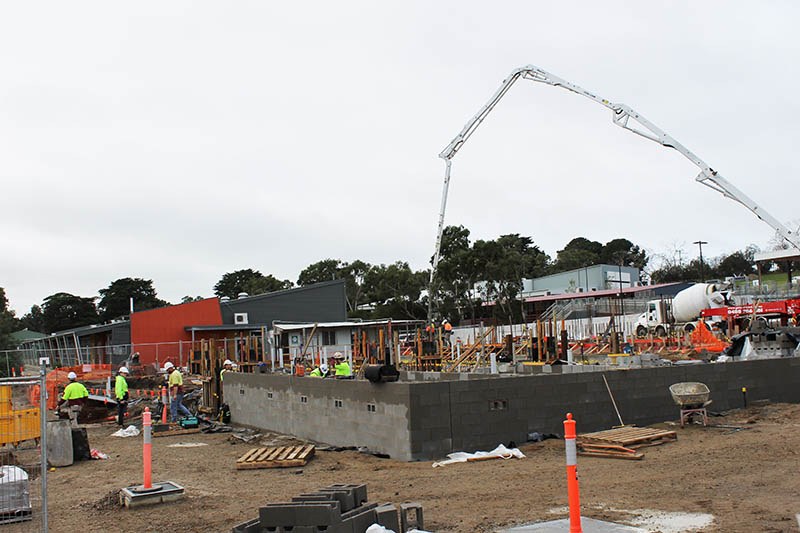
While the school was under the period of remote learning and working, Lyons Constructions has been busy continuing the building of our latest project, the Loyola Administration Centre. They are currently working on laying the slab that will provide the basis for this $12+M building. Located in a central position, this Centre will be an impressive three level building. It will be a significant landmark on our site and will replace the refurbished relocatable classrooms we currently use for the College’s reception, administration offices, Student Wellbeing offices and Staffroom. I share some photos of the building site in the the gallery.
Best wishes,
Michael Exton Principal

Due to the move to Remote and Flexible learning, we are maintaining communications via the following options
For general enquiries please telephone the College on 5251 1136 or email: office@ignatius.vic.edu.au
For student absence please contact the College office by 10am and leave a message or email: office@ignatius.vic.edu.au
For College Fee related enquiries email: fees@ignatius.vic.edu.au
For account related enquiries email: accounts@ignatius.vic.edu.au
For enrolment queries please phone 0429 962 259 or email: registrar@ignatius.vic.edu.au
For general IT support enquiries please email: itsupport@ignatius.vic.edu.au
For Wellbeing support please email: wellbeing@ignatius.vic.edu.au
Thank you for your understanding.
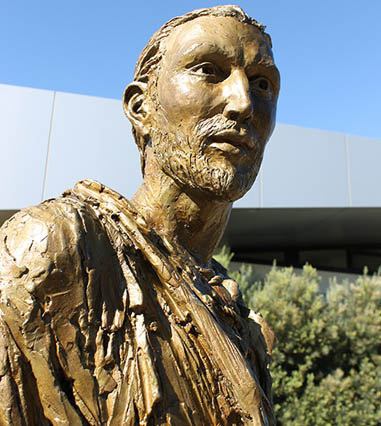
As we celebrate Reconciliation Week in Australia we have been confronted by scenes of racism, violence and hopelessness across America in response to the death of George Floyd. The lack of dignity afforded to African-Americans and the endless examples of justice not being afforded to those at the margins each day has been gut wrenching and visceral. However, the oppression and exclusion based upon to racial differences is a human and universal problem. In Sydney yesterday a young Indigenous man was violently arrested after being confronted by police officers who chose to escalate rather than communicate. As Reconciliation Week concludes we find that there is much work to do locally and as a global family to resolve the lack of human dignity afforded to those who are different.
As we watch the scenes of desperation in America we are drawn to the image of a man killed by those in authority. Who in the pursuit of maintaining control of those who are oppressed chose power over compassion. Deaf to the cries of a dying man the officers rejected also the anguished cries of those who watched him die. The death of Indigenous man David Dungay in 2015 is similar except for the fact that his name is not known and those involved were cleared of wrong doing. In Australia we do not see scenes like these in the media as they occur out of the public spotlight and far from our community.
In Australia we may not see racism or institutionalised oppression daily. The manner in which Indigenous people are disempowered, marginalised and abused happens out of sight and because of this we as a nation are much further from change than they are in America. In the Outback and far north of our Country and in our prisons the treatment of our Indigenous brothers and sisters is significantly more dehumanising than what we see in America. The imprisonment rates for our First People has doubled in the last decade in Victoria alone. Nationally the imprisonment Indigenous people is more than eleven times higher than non-Indigenous people. These facts are not indicative of a violent or bad people but an illustration of their alienation and disempowerment.
Hopelessness is a devastating emotion. Hopelessness can lead people to reject others and society. It can make people live reckless lives without thought for how their actions affect others. In our faith we are well aware of how adherence to the status quo and a vision of power can crush and destroy a person. Jesus was treated in a similar way to George Floyd. A public display of power and authority that those watching could not stop. David Dungay died in a similar way but is not remembered by the public because it happened behind closed doors. David’s death has not bought about any change or sparked a national debate. In fact, tragically in clearing those involved of any wrongdoing the response to his death ensures others will be treated in the same way in the future.
The reason Reconciliation Week exists in Australia is to highlight the need to move forward as a whole community. The issues involved are too big for any person or group to resolve. Collectively though we can respond to the issues we face and offer our compassion and empathy to bring about the changes needed to achieve equity. To be able to respond to the issue we need to be aware of the facts and the reasons that cause the injustices and imbalances that lead people to end up in prison or behaving in ways that are antisocial or violent.
Reconciliation Week encourages us to become aware of the issues Indigenous people face and in empathy of their powerlessness advocate for change. The confrontation in Sydney yesterday was controlled by the police officers and the choice they made to use force was wrong. How though can we open up dialogue and respect? How could yesterday’s incident have ended differently?
If we listen to our Indigenous brothers and sisters we can find a solution to these types of situations. There is a meditative practice called Didarri that Indigenous people have practiced for many thousands of years. Didarri is a practice of deep listening and awareness. It involves waiting and listening to the things around us and the Spirit that moves within us. In doing so we become aware of the connectedness of all things.
If we apply the practice of Didarri to the incident yesterday we can learn a lot about human dignity and how we as a nation can respond to those who are marginalised and powerless. If we listen without judgement and respond in the understanding that we are all connected the structures of oppression and ingrained beliefs can be dismantled. If we hide the truth or use stereotypes to explain a situation we dishonour ourselves and the other.
As Reconciliation Week concludes let us be guided by our faith and it’s teachings, the Spirit that guides or conscience and the deep listening Didarri inspires. If we enter into Reconciliation in this way as an ongoing process we can be bringers of hope and honour all those who are and have been oppressed.
Yours in Christ,
Brendan Nicholls Religious Education and Liturgy Coordinator
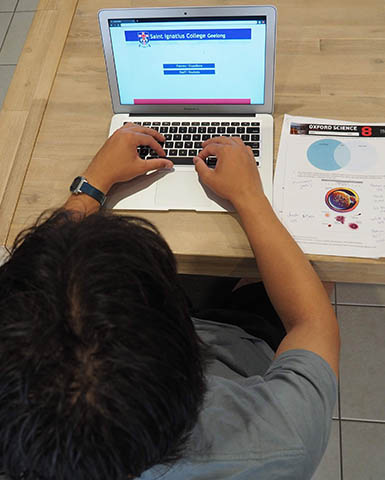
Remote and Flexible Learning and Teaching - Term 2.
Information and Protocols for parents and students to support Remote and Flexible Learning
Information about the delivery of our VCE and VCAL program
This article will be updated regularly to ensure parents/guardians are kept informed of any new advice or changes as matters arise.
Mr Michael Exton Principal
Update 13th May 2020
Re phased return to classroom learning
Dear Parents and Carers
Thank you for all your support during these past few weeks of remote and flexible learning.
Following advice from the Chief Health Officer, the Victorian Government and the Catholic Education Commission of Victoria Ltd (CECV) have advised that schools can begin a phased return to onsite schooling.
In the first stage, students in Prep, Grade 1 and Grade 2, senior secondary students (Years 11 and 12 VCAL and VCE) and all students in specialist schools will return to school from Tuesday 26 May.
Arrangements for Year 10 students undertaking VCE/VET studies are as follows:
To support all school staff to prepare for this transition, Monday 25 May will be a studentfree day.
In the second stage of our return to onsite schooling, all other year levels will return to school from Tuesday 9 June.
For those students who cannot be supervised at home as well as vulnerable children, the existing model of onsite schooling will remain in place during the two-week period from Tuesday 26 May to Tuesday 9 June. The current process that we are using to enable parents and carers to indicate the days or part-days for which onsite schooling is required will continue for this two-week period.
All other students in those year levels will continue learning from home until Tuesday 9 June.
Once a year level has returned, all students will be expected to attend school as normal. Thismeans if you choose to keep your daughter/son home after their year level has returned to onsite schooling, we can no longer deliver their learning from home.
This does not apply to students who need to be absent for health or medical reasons. For those families, please contact the appropriate Year Level Coordinator so we can make an appropriate plan.
This same approach is being taken by all Catholic and government schools in Victoria.
To support the health and wellbeing of all students and staff, our school will continue an enhanced cleaning routine and will encourage frequent handwashing.
If your daughter/son is ill or is feeling unwell, they must not attend school. They must remain home and seek medical advice.
While the Chief Health Officer has advised that students will not be required to maintain physical distancing at school, there will be a number of important changes to our school operations, consistent with health advice to all schools that will be made available in coming days. These will apply until further notice. I will provide more details about our local school context as soon as possible, but it is important to note that changes will include:
We understand that some families may feel anxious about this move back to classroom teaching and learning. I can assure you that this decision has been taken on the basis of the best health advice available to our state.
More information about the return to school and coronavirus (COVID-19) can be found on the CECV website, which will continue to be updated: www.cecv.catholic.edu.au/Coronavirus-information-for-parents.
Thank you for your continued support and patience during this time. We look forward to welcoming our students back to the classroom.
Yours faithfully,
Michael Exton Principal
Update 4th May 2020
Please find attached an article by our Companions Coordinator, Caleb Ryan. Our Companions Ladder program is an important part of what we offer at Saint Ignatius College, and Caleb has provided some suggestions on ways you can continue to build and foster those important relationships with the young people in your household during the time of social isolation.
Update 29th April 2020
Notice of Cancellation of Semester 1 2020 Examinations for Years 9 -11
Dear parents and guardians,
As we continue to monitor the delivery of our curriculum to all students, Saint Ignatius College has made the decision to cancel Semester 1 examinations for all students in Years 9, 10 and 11 at the school.
This decision will stand regardless of any changes relating to remote and flexible learning arrangements between now and the end of this term.
Careful consideration has been placed into this decision by the teachers at the school. Structured consultation with curriculum leaders, year level coordinators, student well-being officers as well as the College Critical Incident Management Team has been taken into account in arriving at this decision.
Unanimous consensus has determined that to proceed with formal examinations previously scheduled for Weeks 9 and 10 of this term would be extremely difficult for students already dealing with the challenges of learning remotely. It is important that we ensure current learning can be undertaken and completed with more time than can normally be achieved with face-to-face delivery. To add an expectation of study and preparation for examinations in addition to coping with current learning has been deemed both unreasonable and ineffective.
Depending on the subject and the year level involved, teachers may choose to modify existing assessment tasks in place of the Semester 1 exam and/or adjust the weighting of these tasks in determining the overall percentage grade for that individual subject.
Please note that in keeping with the VCAA decision to extend Unit 3 studies, our Semester One learning and teaching program for all Unit 1 studies has been extended to the last day of Term Two, Friday June 26th. The Semester Two program will subsequently commence on Tuesday July 14th.
In cancelling the formal examinations for the current semester, we wish to advise that there will be Semester 2 examinations for all students in Years 9, 10 and 11 in the second half of the current school year. Once the College has been provided with further clarity from the VCAA and relevant State education authorities as well as any directives from Catholic Education Melbourne [CEM], information will be provided to students and parents with regard to dates and arrangements for these Semester 2 examinations.
In closing, I take this opportunity to thank you all for your understanding and continuing support as we respond to the challenges confronting schools in these uncertain times.
Yours faithfully
Mrs Annette Chidzey Deputy Principal [Learning & Teaching]
Update 9th April, 2020
Dear Parents and Guardians,
Re: Transition to flexible and remote learning – provision of supervision at the College
As you are aware, following State Government advice, the Catholic Education Commission of Victoria (CECV) has advised that Catholic schools should move to remote and flexible learning at the commencement of Term 2.
“This means that, from the start of Term 2, all students who can learn from home must learn at home.”
Saint Ignatius College will commence remote and flexible learning for our students on Wednesday, 15th April 2020. (Teachers will begin on Tuesday 14th April.)
While it is expected that all students should be learning from home, schools have been asked to consider making supervision arrangements available at school for students in the following categories:
Children who are not able to be supervised at home and on days when no other arrangements can be made. This includes children of parents who cannot work from home, and vulnerable children, such as:
• children in out-of-home care
• children deemed by Child Protection and/or Family Services to be at risk of harm
• children identified by the school as vulnerable (including via referral from a family violence agency, homelessness or youth justice service, mental health or other health services, and children with a disability).
To assess the need for supervision, we need to know how many students we would need to cater for.
If your daughter or son is in one of the categories mentioned above, and you would like to indicate your interest in her or him being supervised at the College while she or he undertakes the remote and flexible learning, please send an email message by 12 noon Tuesday 14th April 2020 to dpoffice@ignatius.vic.edu.au and provide for each student:
• Student name
• Year Level & Homeroom name
• Days of the week attending school
• Brief reason for the need for supervision at school.
We will then contact you via email to let you know what arrangements can be put in place.
Some preliminary considerations include:
• Commencement of supervision on Thursday 16th April;
• 8:45 am to 3:05 pm;
• Transport to & from school will need to be provided by parents (at the time of writing this message, we have no advice about bus availability);
• No canteen, students to bring their own food & drink bottle;
• Social distancing would be expected as much as possible;
• The student would need to be well;
• Neat casual clothes;
• Supervision would be from a distance while students work using their laptops as if they were at home; and
• Students sign in and out at the front College office.
Thank you.
Yours faithfully,
Michael Exton Principal
Update 7th April, 2020
Dear Parents, Students and Staff Members,
Given this morning’s announcement by the Premier about arrangements for Term Two schooling, the Catholic Education Commission Victoria (CECV) has provided advice that our College will be following from the start of Term 2 2020.
While this preliminary contact is relatively brief, more detailed information will be provided via a second email from me on Thursday 9th April once further consultation has occurred. In this update, I will outline specific advice related to Term 2 curriculum delivery and VCE
arrangements in keeping with today’s advice to Catholic schools.
Term 2 arrangements
On the advice of the Victorian Chief Health Officer, the Catholic Education Commission Victoria (CECV) has advised that all Victorian Catholic schools are required to transition to remote and flexible learning arrangements for Term 2. Given this advice, our students will commence remote learning from Wednesday 15th April. (Teachers and Education Support Officers will commence work for the new term on Tuesday 14th April.)
The Chief Health Officer has advised that these arrangements should remain in place for the duration of Term 2 and will then be reviewed.
Given the government objective act to slow the spread of coronavirus, schools have been asked to communicate to students and parents that all children who can learn at home must learn from home.
Schools are able to make exceptions for children of parents who cannot work from home, and vulnerable children.
Parents will be informed via email on Thursday 9th April about how they can access this supervision at our College and what arrangements we will put in place for this.
VCE update
The Victorian Premier and Minister for Education have also announced the following changes to VCE studies.
VCE students will still receive an ATAR, but there will be a number of adjustments to the academic timetable for VCE and VCAL students:
• The GAT will move from June to October or November
• End-of-year exams will be postponed until at least December
• School-based assessment tasks will be reduced where possible to relieve some pressure on students as they move to remote and flexible learning arrangements
• Universities will be asked to delay the start of the 2021 university year to account for the impact of coronavirus on senior secondary students.
VCE study scores will continue to be a combination of school-based assessment and external exams.
VCAL students will have more time to complete their courses and this will be consistent with the revised dates for the VCE.
The Victorian Curriculum and Assessment Authority (VCAA) is also examining a compressed end-of-year exam schedule – including slightly shortening each exam – in recognition of the disruption caused by the pandemic.
A small number of students undertaking VET may have the award of their VCE or VCAL delayed until the beginning of 2021, so that they can complete mandatory practical or workplace learning requirements – ensuring they are not disadvantaged by the lack of hands-on practice.
Making this transition to remote learning and teaching is understandably going to be challenging for us all. Continuity of learning is vitally important. We have been planning for this transition and are well-prepared. There is, however, still a great deal that we are going to learn over the coming weeks as we, along with other schools, implement remote learning & teaching.
Thank you in anticipation of your support for and understanding of, the need to move to remote learning and teaching. It is important that we work together in partnership to maintain learning for our students under these tough and trying times for all in our community whilst also ensuring the health and safety of all members of our school and the wider community. We look forward to the time when school resumes on campus but until that is possible, please be assured that we will do all we can to support our school objective to work together to maintain our students’ ability to learn in changed circumstances.
In closing, I reiterate that we will provide families with important information this Thursday to further support the transition to learning from home.
Yours faithfully,
Michael Exton Principal
Update 6th April 2020
Update 2nd April 2020
Update 23rd March 2020
PDFs and website links noted in the above letter:
- Australian Psychological Society information
- World Health Organization (WHO)
Mental health and wellbeing support and advice for students and parents:
Lifeline: https://www.lifeline.org.au/get-help/topics/mental-health-and-wellbeing-during-the-coronavirus-covid-19-outbreak
Beyond Blue: https://www.beyondblue.org.au/the-facts/looking-after-your-mental-health-during-the-coronavirus-outbreak
Support specifically for students:
- Headspace fact sheet
- Kids Helpline support: https://kidshelpline.com.au/coronavirus#wellbeing
Update 23rd March 2020
Update: March 18th 2020
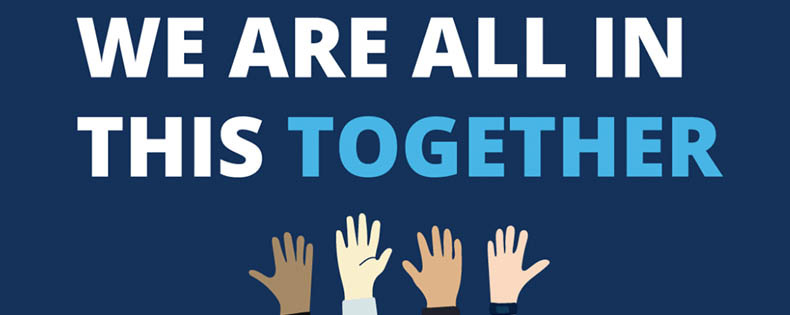
As we prepare to transition back to onsite learning it is important to ensure that all families are aware of some of the new guidelines and protocols that have been put in place to protect the safety of everyone onsite. The attached document outlines an extensive list of procedures and expectations in relation to COVID-19; I would encourage families to ensure they familiarise themselves with this document.
There are a few points from this document that I would like to highlight:
Students Feeling Unwell
At Home:
- Do not send your son/daughter to school if they are showing any flu like symptoms or are generally feeling unwell. Parents contact the School, as per normal, to advise that their child is not able to attend.
At School:
- If a student is unwell at school:
* they are to inform their teacher IMMEDIATELY
* go to Front Reception where the student will be taken to the designated first aid room. The Reception staff will phone home and parents will have to arrange for the student to be collected from school.
*If a student or staff member is tested for Covid-19 it is recommended for the safety of others that they remain home until they have received their test results.
Yard
- The College has created specific areas for year levels at recess and lunch, to further reduce the likelihood of large numbers of students in one area.
- Students are required to bring to school every day their own:
o Water bottles (to be filled up at taps around the school). Water fountains will be closed.
o Lunch and snacks (to reduce the need to go to the canteen)
Physical Distancing
- Students are encouraged to maintain physical distance from others where possible and are not to engage in physical contact when greeting staff or other students
- Physical activity is encouraged at recess and lunch, however students should maintain physical distancing where possible. No physical contact should occur during sport played at recess and lunch, e.g. no tackling
Hygiene Practices
- Students should cover their mouth and nose when coughing, sneeze with a tissue, or cough/sneeze into thier elbow
- Students should use the Sanitiser units FREQUENTLY throughout the day that have been installed in every classroom in the school and in corridors
As we move our attention to having all students back onsite, it is important to highlight the steps that the College will take if there is a confirmed case of COVID-19 of one of staff or student’s. As part of our proactive approach the College has established an extensive Outbreak (Covid-19) Management Strategy that ensures we are ready if there is a confirmed case within our College. The following are some of the steps included in the strategy:
- College would go into Lockdown
- A mapping exercise would be utilised to determine level of infection throughout the College.
- Isolation would occur of staff and students who have possibly been infected.
- Full evacuation of the College could occur, utilising the local bus company.
- School closure (min 24hrs).
- Cleaning company to perform deep clean of infected sites and general clean of the College.
- Parents notified of College reopening.
This is an important strategy and will assist the College greatly if the need arises.
A final reminder that all students should arrive on Tuesday June 9 in full winter uniform. The Bellarine Uniform shop is now operating under normal opening hours, if you require any specific items.
I am sure there will be mixed emotions for some of our students and families when all pupils return to onsite learning next week. I am hopeful all students will make a smooth transition back and I look forward to continue working with all our young people and families.
Kind regards
Michael Timms Deputy Principal [Students]

Our student wellbeing team would like to recognise the impact of grief in our community, particularly our youth community, in recent months. We acknowledge that the grieving process can be complicated following a death by suicide. This can be confronting and overwhelming for many. Our team would like to offer suggestions and information to assist students to process their grief. We hope the below information is helpful in instigating and supporting conversations around bereavement, mental health and help seeking.
A PDF version of the information can be downloaded via the link below:
Our hearts go out to those affected by the recent deaths in the Geelong community.
Please remember that our wellbeing team are available and ready to assist students if needed. We can be contacted via email at: wellbeing@ignatius.vic.edu.au or via the school phone number 52511136.
Go easy on yourself
Suicide affects many people: family members, friends, peers, co-workers and the community as a whole. It has a ripple effect. It’s far reaching and has a significant impact on many more people than can be counted.
After a Suicide
Following a death by suicide, many grief responses are significantly intensified and may be overwhelming. You may be experiencing a range of difficult emotions such as shock, disbelief or even anger alongside many unanswered questions including ‘could I have done anything to prevent it?’ and ‘why did he/she do it?’.
It is important to know that these types of emotions and thoughts are normal grief reactions and are very common amongst people bereaved by suicide. Grieving in response to a suicide requires an adjustment to life and will be different for everyone. It may be difficult to adapt to the changes you might face in your life - your hopes, your thoughts, your future and your beliefs may all be affected. Grief is a healthy part of the healing process and not a sign of weakness. As the grieving process is worked through, the intensity of grief should lessen. Throughout this process it is important for you to understand your emotions.
Shock
Shock is often the first emotion you may feel, including disbelief and confusion. Shock can also affect people physically through symptoms such as nausea, sleeping difficulties, chest pain, shaking, stomach pain, and breathlessness. If you experience any of these symptoms you should see your local GP. These symptoms can also be associated with anxiety and feelings of helplessness.
Grief and Loss
Grief is the normal and natural response to loss and can affect many parts of your life after a person close to you has suicided. Feelings associated with grief and loss vary and you may experience sadness, anger, hopelessness, anxiety, shock, panic, relief, denial, abandonment, regret, resentment, intense sadness, numbness or guilt. Whilst these feelings can be frightening and overwhelming they are normal reactions to loss. Accepting them as part of the grieving process is necessary for healing. You may experience all of these emotions during your grieving process, or just some. You may also experience some of these feelings even when you have not known the deceased personally,
Guilt
People who are bereaved by suicide can experience feelings of guilt. You might worry about not having picked up on suicidal behaviours or warning signs. It is important to remember that it is always easier to recognise a person’s distress in hindsight, and that the level of support you offered to them was based on the understanding and ability that you had at that time. When someone is at the point of suicide, they are usually unable to think clearly and rationally and are may not feel they are able to express their true thoughts and feelings. No one is responsible for someone else’s decision to take their own life.
Why?
The question ‘why’ is one that can haunt people bereaved by suicide and in many cases, this feeling may linger for a long time. It is difficult not being able to understand why the person has taken his or her life. Even if you were aware of the problems and difficulties that the person was experiencing, it is difficult to understand why they felt that taking their life was their only answer. This is a normal thing to question and grapple with and sometimes there may feel there is simply no clear answer.
Anger
It is normal to feel angry with the person who suicided as their decision to leave will have caused a lot of pain, however this reaction can feel confusing. You might find yourself blaming someone else or those you believe could have contributed to the suicide or even the person themselves. You may also feel angry with yourself for not preventing the suicide. Denying your anger can be far more damaging than letting yourself express it. Finding a way to do so in a safe and non-destructive way is important. Talking about it can help, as can participating in physical activities such as walking or playing sport.
Stress, Anxiety and Depression
Sometimes, people who are bereaved by suicide can suffer stress, anxiety or post-traumatic stress symptoms. This is a normal reaction to the traumatic event of suicide. You may have difficulty sleeping, concentrating, experience disturbed sleep, feel panicked or not want to be alone. Loneliness can add to your grief or feeling as though no one else knows how you feel so it is important to try to surround yourself with family or friends for support during this time.
Questioning Mental Health
We may question our own mental health during these times. We may ask “Could I do the same thing?”, “Is there something wrong with me?” “Do I have mental health problems?” “Am I unsafe?” Or we may worry more so about our friends. We may be more concerned about what they say, their off handed comments or their changed behaviours. Sometimes this is warranted as we can all feel unsettled, out of kilter, and unsure, like the rug has been ripped out from under us. The best way to combat and tackle these feelings is to talk to someone.
Likewise, parents can become more vigilant, concerned and worried about their own children. It may feel like they are more invasive, questioning and involved. Be empathic. Talk to them. Talk together. It may help both of you to feel better and more connected. A recent suicide can also bring up traumatic or bad memories for others near you. Give them a hug. Just be aware and let them know you are near.
Social Media
Sometimes people find posting online to social media is a helpful way to express how they are feeling about their sadness and reach out to others. It can feel healing.
For many however, it may not feel like a space that they want to occupy and sometimes it can actually feel quite unhelpful and toxic. It may conjure up bad memories, unwanted feelings, and more sadness than otherwise experienced. It may also interfere with your friends in their processing of the grief if they continue to see reminders all over their social media feeds.
It is okay to take a break off social media too. Try to find some other productive ways to process your grief such as journaling, talking to friends, spending time with others, or doing sport.
Go easy on your friends, give them space to log off too if they feel it’s not helpful for them and remember to check in to see if they are OK.
Worried that friend is not OK?
If you are concerned about a friend and their safety after they’ve experienced a loss to suicide remember not to keep it to yourself. It can be a heavy weight for you to hold all on your own, so by sharing, you can make sure it does not affect your own mental health and the more support your friend can access. You can talk to a parent, a teacher or wellbeing about your concerns, or even directly to them about why you are feeling worried about them. They may be able to help.
What if my friend tells me that they are not okay but ask me to promise not to tell anyone else?
In such instances, it can seem conflicting whereby you may want to support your friend by remaining loyal, but at the same time that may not be in their best interest. In a serious situation like this, their safety is the most important thing. It is best to discuss this situation with a trusted adult or your school wellbeing to find a solution together.
How long will this go on for?
The grieving time may also vary depending on personal circumstances, everyone’s experience is different. It may seem as though the pain will never go away, but it is important to remember that things will eventually start to ease.
Remember that just because the pain might lessen, it doesn’t mean that person means any less to you or that you will forget them. It is important not to feel guilty about feeling okay, laughing with friends or having ‘good days’.
When should I seek help?
Grief can be really consuming and feel quite exhausting. It can also feel very uncomfortable to sit with. It is important to seek help to allow you to process your grief in a productive and comforting way. This is particularly important if you are experiencing:
There is no harm in talking. Why not try it?
What can I do about these feelings?
What is not helpful?
What can I do?
Break the Stigma
Former North Melbourne footballer Wayne Schwass is a mental health advocate and shares his experience and personal knowledge. A powerful and informative interview that would be great for families to watch and discuss. Particularly Fathers and sons.
https://www.youtube.com/watch?v=e1WOt6QXvxg
Kind regards
Olivia Whitehead Student Wellbeing Officer

These operation have been devised due to current Vic COVID-19 guidelines.
No parents allowed on site. No volunteers on site.
Maximum of 4 only to serve in the canteen.
Social distancing requirements.
Canteen open to serve:
Recess - Years 10-12 only (Not serving Years 7-9)
Lunch - Years 7-12
Lunch Orders:
Years 7 - 8 : YLCs to give home room teachers a (washing) basket for each HR teacher.
Students to complete their order, place into the basket with money. Students leaders to take basket to canteen by end of homeroom and collect from canteen at 12.25pm.
Year 9: 1 basket near YLCs office (PANJ)
Students to complete their order on the paper bag, place into the basket with money. Students leaders to take basket to canteen by end of recess and collect from canteen at 12.25pm.
Years 10-12: basket at the canteen
Students to complete their order on the paper bag, place into the basket with money at the canteen by end of recess and collect from canteen during lunch time.
Staff: basket at the canteen
Staff to complete their order on the paper bag, place into the basket with money at the canteen by end of recess and collect from canteen during lunch time.
Each basket will have a Canteen Price List, paper bags and plastic money pockets.
Each basket will be daily cleaned and sanitised by Canteen staff.
Staff on Yard Duty to encourage physical distancing for students waiting in queues.
For Term 3 these Canteen Operations are to be reviewed and adjusted to comply with prevailing Vic COVID-19 guidelines.
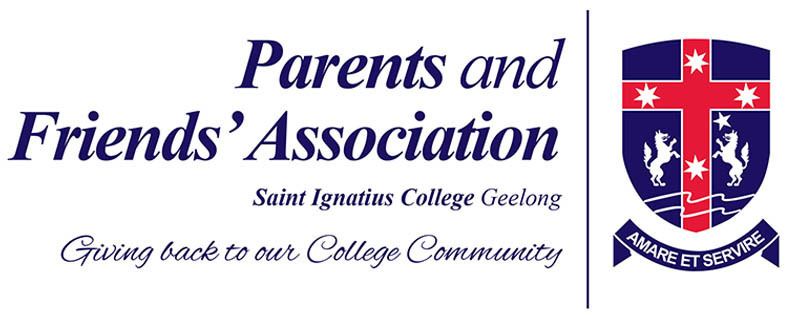
Become part of the Parents and Friends’ Association
All future meetings currently on hold due to COVID-19.
We look forward to seeing you back there when we get the green light!
Meeting dates scheduled for rest of year are as follows (subject to above)
July 14
Aug 11
Sept 8
Oct 13.
Nov – AGM TBA
Even if you can’t make it to the monthly meetings, but think you might be able to be on call to help at the different things we are involved in, please get in touch with us by emailing sicgpandf@ignatius.vic.edu.au
The Uniform Shop
Unfortunately due to COVID-19 we have had to close the uniform shop until further notice.
We apologize for any inconvenience this may cause but please note that NOONE is open for business.
We are always seeking Volunteers to help in the uniform shop when it is back open for business.
If you are available and have time to help out contact Sandi Clark by emailing sicgpandf@ignatius.vic.edu.au .
Training is provided.
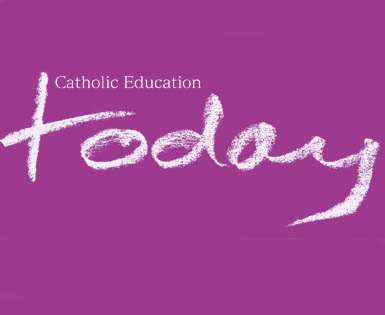
Please click here for the latest edition of Catholic Education Today https://www.cem.edu.au/News-Events/Catholic-Education-Today.aspx
The Term 2 edition focuses on ‘keeping the light of Christ’ with articles that reflect Catholic schools’ point of difference: from supporting local communities by providing fee-relief to promoting slavery-free resources to make a difference on a global level. This issue explores the interreligious culture in our schools, contains guidance to help families with remote learning, and celebrates student achievement in the digital Creative Arts Exhibition and events ‘Around the Archdiocese’.

The recent home-schooling experience of Australian students is about to end with most states and territories transitioning kids back to school. For parents, many of whom have discovered just how complex teaching can be, the return to school will be a welcome relief. For children, going back to school may bring a mixed bag of feelings. Eager anticipation about reconnecting with friends and teachers will probably be accompanied by a level of anxiety about what school may be like upon return.
School undoubtedly will be a different experience for students post COVID-19. For a start they’ve just experienced a prolonged period of remote learning and an absence from their friends, which will take time to process when they return to school.
With organised extra-curricular activities put on hold most children have had a great deal of free time, which has placed the locus of control firmly in their hands. I suspect many kids will grieve their lack of freedom, as they’ve had a glorious glimpse of what an unstructured life is like. It may take some time for them to get back into the swing of school life.
With the return to school imminent here are some sensible strategies to make adjustment easier for students.
Get ready for a return
Worriers and anxious types in particular like to know what’s ahead so your approach will make a difference. Prepare your child for a return by discussing the safety procedures the school will be implementing. Let young children know that an adult won’t be accompanying them past the school gate. Ask your child what they are looking forward to and check in with how they are feeling about a return. Validate any fears and apprehensions and correct any misconceptions.
Go slowly
This period will mirror the start of the school year when your child had to adjust to new teachers, different classmates and a new year level. Adjusting to change takes a great deal of personal energy, so you child or young person may become tired, grumpy, even moody at home. Make allowances for these personal changes and make sure they have plenty of free time to unwind after school.
Focus on reconnection
Make reconnection the theme for your child’s return to school. He or she will have to reconnect with friends, teachers and learning, which takes time. In all likelihood, your child’s teachers will use many strategies to help your child connect with their friends, reflect on their time at home and move them back into full-time learning mode. Support these activities and keep your learning expectations for your child in check.
It may take the rest of the term for some children to adjust to their life back at school.
Stay calm
Anxiety is very contagious, so it’s easy for us as parents to take on our children’s worries and fears. The reverse is true, and kids can pick up our worries, taking them on as their own. As a buer against anxiety ensure you do something each day that brings you some joy, whether it’s listening to music, going for a walk or having a coffee with a friend.
Look after yourself
In recent months parents and teachers have been doing significant emotional labour. The learning and adjustment curves have been massive, with little time to relax and take a break. Consider your own emotional resources and make your wellbeing a priority, which will make it easier for you to stay calm if your child experiences difficulties.
Communicate confidence
It’s a fine line that many parents walk between being flippant (‘you’ll be right’) and showing confidence (‘you’ll do okay’) when kids struggle to adjust to change. My research into childhood anxiety reveals that children and young people want parents and teachers to understand their fears and anxieties, and to coach them to negotiate difficulties including adjusting to change. You can support your child through sharing stories of resilience, focusing on the positives and letting them know that will eventually adjust.
The COVID-19 pandemic has thrown up many difficulties requiring us all to quickly adapt to new situations. Flexibility is a prime characteristic of resilient people, so if nothing else, getting through these challenging times will make us all more resilient.
Michael Grose
Michael Grose, founder of Parenting Ideas, is one of Australia’s leading parenting educators. He’s the author of 10 books for parents including Thriving! and the bestselling Why First Borns Rule the World and Last Borns Want to Change It, and his latest release Spoonfed Generation: How to raise independent children.